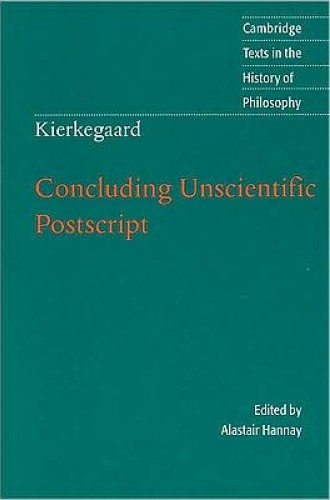Kierkegaard, edited and translated by Alastair Hannay
Many of the readers who flock to Søren Kierkegaard are members of the philosophy guild. The Kierkegaard book of choice for most of these aficionados is the ironically titled Concluding Unscientific Postscript. It is in this sprawling 500-plus-page addendum to the slim and taut Philosophical Fragments that the Danish Socrates tenders his critique of objectivity and makes his most tightly (though still obliquely) reasoned case that reason and knowledge can take us only so far in life—or at least in the life of the spirit.
Those attracted to Kierkegaard for his dialectical triple axels have long awaited a fresh translation of this marvel of a book, not because the earlier Swenson/Lowrie and Hong editions are inadequate—they are not—but because this is a maddeningly complicated text with many a nettlesome sentence. For non-Danish speakers and perhaps Danes as well, it always helps to have another take, especially when that take comes from Alastair Hannay, a renowned philosopher and translator who has lived and taught in Scandinavia for decades.
As Hannay explains in his illuminating and exceptionally clear introduction, the Postscript was composed in 1845, during a period when (comic as it may seem) our highly neurotic, theological Mozart was contemplating retiring from the scribbling life to seek a post as pastor in a rural church. By this time the 32-year-old Kierkegaard had already authored numerous works, including Stages on Life's Way and Edifying Discourses. For reasons that it would take a Freud to fathom, Kierkegaard was firmly convinced that he would not live beyond his 33rd year, so he sought to capture the entire teeming jungle of his thought between the hard covers of the Postscript.






